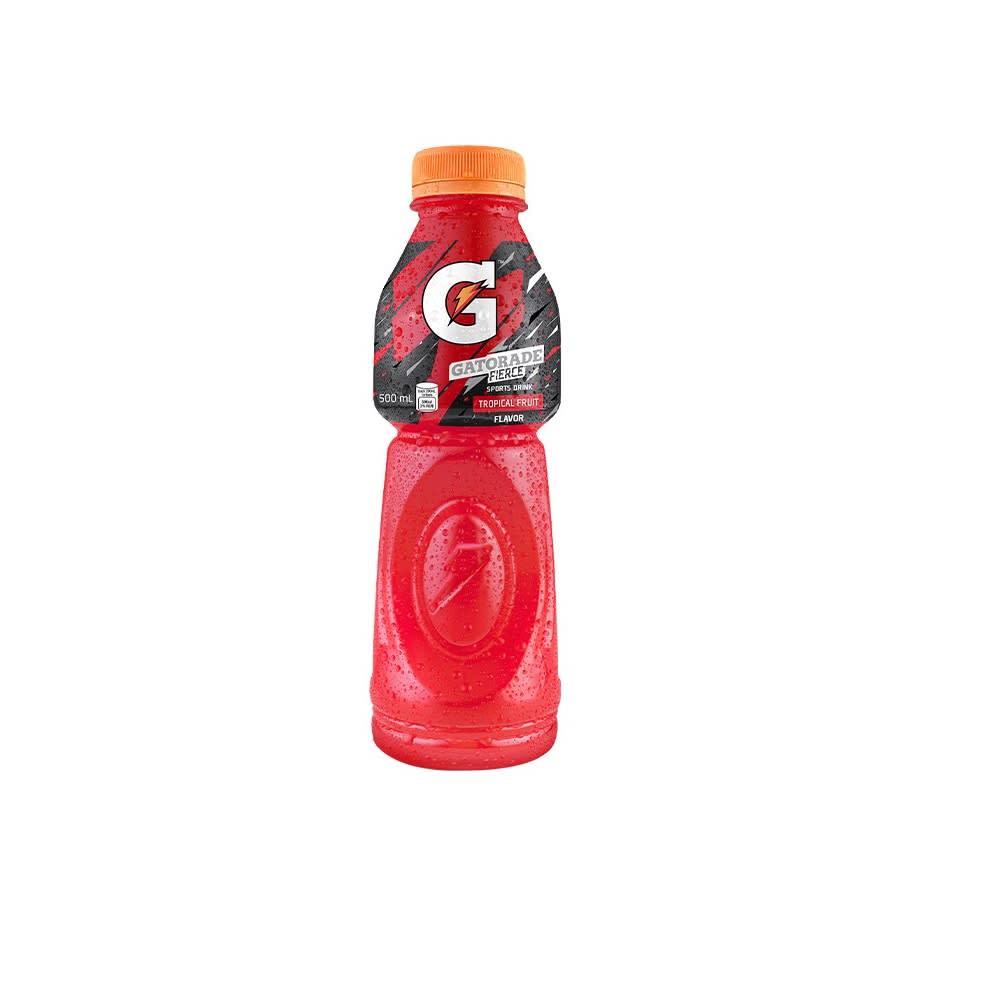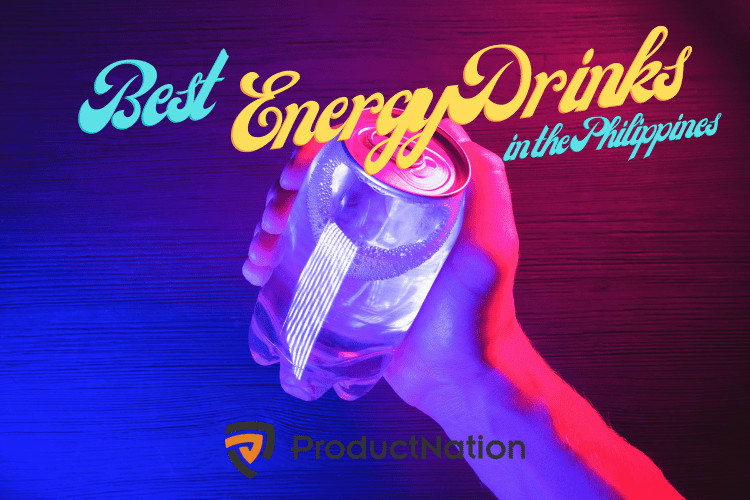Gatorade is a popular beverage that has sparked debates among health enthusiasts, athletes, and casual drinkers alike. Many people wonder whether Gatorade qualifies as an energy drink. This article will dive deep into the science behind Gatorade, its ingredients, benefits, and potential drawbacks, providing you with a comprehensive understanding of its role in the beverage world.
Gatorade has been a staple in sports hydration for decades, but its growing popularity has led to confusion regarding its classification. Is it an energy drink, a sports drink, or something entirely different? As we explore this topic, we aim to clarify the distinctions between Gatorade and other beverages, ensuring you make informed decisions about your hydration and energy needs.
Whether you're an athlete looking for performance-enhancing hydration or someone seeking a boost during a long day, this article will provide valuable insights. By the end, you'll have a clear understanding of Gatorade's role in your daily routine and its differences from traditional energy drinks.
Read also:Affordable Housing In Queens A Comprehensive Guide To Finding Your Perfect Home
Table of Contents
- What is Gatorade?
- Gatorade vs. Energy Drink: Key Differences
- Gatorade Ingredients Explained
- Benefits of Drinking Gatorade
- Potential Drawbacks of Gatorade
- Who Should Drink Gatorade?
- Exploring Gatorade Varieties
- Gatorade vs. Other Sports Drinks
- Health Tips for Drinking Gatorade
- Conclusion: Is Gatorade an Energy Drink?
What is Gatorade?
Gatorade is a sports drink designed to replenish fluids, electrolytes, and carbohydrates lost during physical activity. Developed in 1965 by a team of researchers at the University of Florida, Gatorade quickly became a go-to choice for athletes seeking to maintain optimal hydration and performance.
Unlike energy drinks, which are often packed with caffeine and other stimulants, Gatorade focuses on hydration and electrolyte balance. Its primary purpose is to help individuals recover from intense workouts or prolonged physical activity.
Gatorade's formula is carefully crafted to mimic the natural balance of fluids and minerals lost through sweat, making it an ideal choice for athletes and fitness enthusiasts. However, its classification as an energy drink remains a topic of discussion, which we will explore in detail later.
Gatorade vs. Energy Drink: Key Differences
Energy Drinks Focus on Caffeine
Energy drinks are formulated to provide a quick boost of energy, primarily through caffeine and other stimulants. Common ingredients in energy drinks include guarana, taurine, and B-vitamins, all of which contribute to increased alertness and focus.
- Caffeine levels in energy drinks can range from 80mg to over 300mg per serving.
- Guarana, a natural source of caffeine, is often used in energy drinks for its stimulating effects.
- Taurine, an amino acid, is believed to enhance cognitive function and physical performance.
Gatorade Emphasizes Hydration
On the other hand, Gatorade prioritizes hydration and electrolyte replenishment. While it does contain small amounts of sugar for quick energy, its primary focus is on maintaining fluid balance and supporting athletic performance.
Studies have shown that proper hydration can improve endurance and reduce the risk of heat-related illnesses during exercise. Gatorade's balanced formula helps athletes maintain peak performance without the jittery side effects often associated with energy drinks.
Read also:Irvine Spectrum Movies Your Ultimate Guide To Entertainment
Gatorade Ingredients Explained
To better understand whether Gatorade qualifies as an energy drink, let's take a closer look at its ingredients:
- Water: The primary ingredient in Gatorade, serving as the base for hydration.
- Sugar: Provides a quick source of energy and enhances flavor.
- Sodium: Helps regulate fluid balance and supports nerve function.
- Potassium: Aids in muscle function and supports heart health.
- Citric Acid: Enhances flavor and acts as a preservative.
- Natural Flavors: Adds variety to the taste profile.
While Gatorade contains sugar, its levels are significantly lower than those found in most energy drinks. This makes it a better option for prolonged physical activity, where sustained energy is more important than a quick caffeine boost.
Benefits of Drinking Gatorade
Improved Hydration
One of the primary benefits of Gatorade is its ability to improve hydration. During intense physical activity, the body loses fluids and electrolytes through sweat. Gatorade's balanced formula helps replenish these essential nutrients, ensuring optimal performance.
Enhanced Performance
Adequate hydration is crucial for maintaining peak performance during exercise. Studies have shown that even mild dehydration can lead to decreased endurance, increased fatigue, and impaired cognitive function. Gatorade helps combat these effects by providing a steady supply of fluids and electrolytes.
Quick Energy Source
The sugar content in Gatorade serves as a quick source of energy, helping athletes maintain their strength and focus during prolonged activities. Unlike energy drinks, which rely on caffeine for stimulation, Gatorade's energy boost comes from natural carbohydrates.
Potential Drawbacks of Gatorade
Sugar Content
While sugar is necessary for quick energy, excessive consumption can lead to health issues such as weight gain and dental problems. It's important to consume Gatorade in moderation, especially if you're not engaging in intense physical activity.
Artificial Ingredients
Some varieties of Gatorade contain artificial colors and flavors, which may not appeal to all consumers. If you prefer natural ingredients, opt for Gatorade's organic or natural options.
Not a Substitute for Water
Although Gatorade is an excellent hydration option for athletes, it should not replace plain water in everyday situations. For casual hydration, water remains the best choice due to its zero-calorie content and absence of added sugars.
Who Should Drink Gatorade?
Gatorade is ideal for individuals engaging in prolonged physical activity or intense workouts. Athletes, fitness enthusiasts, and anyone participating in endurance sports can benefit from its hydration and electrolyte replenishment properties.
However, casual exercisers or those with sedentary lifestyles may not need the extra sugar and calories found in Gatorade. In such cases, plain water or low-calorie alternatives may be more suitable.
Exploring Gatorade Varieties
Gatorade Thirst Quencher
The classic Gatorade Thirst Quencher is the most popular variety, offering a balanced mix of electrolytes and carbohydrates. Available in a wide range of flavors, it's perfect for athletes and fitness enthusiasts alike.
Gatorade Zero
Gatorade Zero is a low-calorie option designed for those seeking hydration without the extra sugar. It contains the same electrolytes as the original formula but with reduced calorie content.
Gatorade Organic
For consumers who prefer natural ingredients, Gatorade Organic offers a clean label option. Made with organic cane sugar and natural flavors, it's a great choice for those looking to avoid artificial additives.
Gatorade vs. Other Sports Drinks
While Gatorade remains one of the most popular sports drinks, several competitors offer similar hydration benefits. Brands like Powerade, Hydralyte, and Nuun provide alternative options for athletes and fitness enthusiasts.
When choosing a sports drink, consider factors such as taste, calorie content, and electrolyte balance. Gatorade's long-standing reputation and extensive research make it a trusted choice for many, but individual preferences may vary.
Health Tips for Drinking Gatorade
To maximize the benefits of Gatorade while minimizing potential drawbacks, follow these health tips:
- Drink Gatorade during or after intense physical activity to replenish lost fluids and electrolytes.
- Choose low-calorie or organic varieties if you're concerned about sugar intake.
- Pair Gatorade with a balanced diet to ensure overall nutrition and hydration.
- Limit consumption if you're not engaging in prolonged physical activity, as excessive sugar intake can lead to health issues.
Remember, Gatorade is designed to support athletic performance and hydration, not as a daily beverage for casual use.
Conclusion: Is Gatorade an Energy Drink?
In conclusion, Gatorade is not an energy drink in the traditional sense. While it provides a source of quick energy through its carbohydrate content, its primary focus remains on hydration and electrolyte replenishment. Unlike energy drinks, which rely heavily on caffeine and stimulants, Gatorade offers a balanced formula designed to support athletic performance.
By understanding the differences between Gatorade and energy drinks, you can make informed decisions about your hydration and energy needs. Whether you're an athlete seeking peak performance or someone looking for a refreshing beverage, Gatorade remains a trusted choice for hydration and recovery.
We encourage you to share your thoughts and experiences with Gatorade in the comments below. Additionally, feel free to explore other articles on our site for more insights into health, fitness, and nutrition. Stay hydrated, stay active, and enjoy the benefits of a well-balanced lifestyle!



